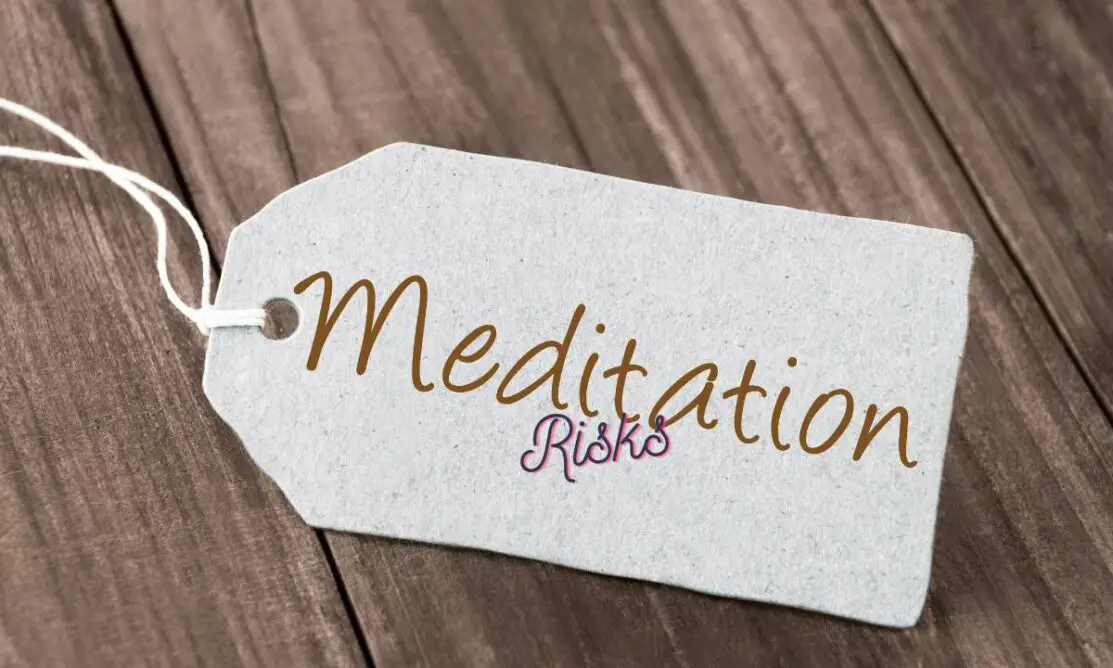Introduction
Meditation is a practice that has been used for centuries to help people relax and reduce stress.
While it is generally considered to be a safe and beneficial practice, there are some potential risks associated with meditation that should be considered.
This article will discuss the potential risks of meditation and provide tips for minimizing them.
Are there any risks of meditation?
Meditation is a great way to relax and de-stress, but it’s important to remember that it’s not a one-size-fits-all solution. While there are many benefits to meditation, there are also some potential risks that you should be aware of.
One of the most common risks associated with meditation is that it can cause feelings of anxiety or depression. This is especially true if you’re new to meditation and don’t have a good understanding of how to practice it properly. If you find yourself feeling overwhelmed or anxious during meditation, it’s important to take a break and reassess your approach.
Another potential risk of meditation is that it can lead to physical discomfort. This is especially true if you’re not used to sitting in a certain position for an extended period of time. If you find yourself feeling stiff or sore after a meditation session, it’s important to take a break and stretch out your body.
Finally, it’s important to remember that meditation is not a substitute for professional medical advice. If you’re dealing with a mental health issue, it’s important to seek help from a qualified professional.
Overall, meditation can be a great way to relax and de-stress, but it’s important to be aware of the potential risks. If you find yourself feeling overwhelmed or anxious during meditation, take a break and reassess your approach. And if you’re dealing with a mental health issue, it’s important to seek help from a qualified professional.

The Potential Risks of Meditation for Children and Teens
Meditation is becoming increasingly popular among adults, but what about kids and teens? While there are many potential benefits to meditation for children and teens, there are also some potential risks that parents should be aware of.
First, it’s important to note that meditation is not a one-size-fits-all practice. Different types of meditation can have different effects on different people, so it’s important to find the right type of meditation for your child or teen. Some types of meditation can be too intense for young minds, so it’s important to find a practice that is age-appropriate.
Another potential risk of meditation for children and teens is that it can be difficult for them to stay focused. Kids and teens are often easily distracted, and meditation requires a great deal of focus and concentration. If your child or teen is having difficulty staying focused during meditation, it may be best to find a different type of practice or to take a break from meditation altogether.
Finally, it’s important to be aware of the potential for meditation to bring up difficult emotions. Meditation can be a powerful tool for self-reflection, and it can bring up emotions that your child or teen may not be prepared to handle. If your child or teen is having difficulty dealing with difficult emotions that arise during meditation, it’s important to talk to them and provide support.
Overall, meditation can be a great tool for children and teens, but it’s important to be aware of the potential risks. Make sure to find an age-appropriate practice, be aware of the potential for distraction, and be prepared to provide support if difficult emotions arise.
How to Avoid the Spiritual Risks of Meditation
Meditation is a great way to relax and find inner peace, but it can also come with some spiritual risks. To make sure you get the most out of your meditation practice, here are some tips to help you avoid the spiritual risks of meditation.
1. Set Clear Intentions: Before you start your meditation practice, take a few moments to set clear intentions. Ask yourself what you want to get out of your meditation session and why you’re doing it. This will help you stay focused and avoid getting lost in your thoughts.
2. Stay Grounded: It’s easy to get lost in the moment during meditation, but it’s important to stay grounded. Make sure you’re aware of your body and the physical sensations you’re feeling. This will help you stay connected to the present moment and avoid getting too far out of your comfort zone.
3. Don’t Push Yourself Too Hard: Meditation can be a powerful tool, but it’s important to take it slow. Don’t push yourself too hard or try to reach a certain level of enlightenment. Take your time and enjoy the journey.
4. Be Mindful of Your Thoughts: During meditation, it’s normal to have thoughts come and go. Don’t get too attached to them or try to control them. Just observe them and let them pass.
5. Don’t Force It: If you’re feeling overwhelmed or anxious during your meditation session, don’t force it. Take a break and come back to it when you’re feeling more relaxed.
By following these tips, you can make sure you get the most out of your meditation practice and avoid the spiritual risks that come with it. Happy meditating!
Exploring the Mental Health Risks of Meditation
Meditation has become increasingly popular in recent years, with many people touting its benefits for mental and physical health. But while meditation can be a great tool for relaxation and stress relief, it can also come with some risks to mental health. In this blog post, we’ll explore the potential mental health risks of meditation and how to mitigate them.
First, it’s important to note that meditation can be a powerful tool for mental health. It can help reduce stress, improve focus, and even reduce symptoms of depression and anxiety. But like any powerful tool, it can also be misused or abused.
One of the most common risks of meditation is that it can lead to a sense of detachment from reality. This can be especially true for those who practice meditation for long periods of time or who use it as a form of escapism. This detachment can lead to feelings of isolation, confusion, and even depression.
Another risk of meditation is that it can lead to a sense of spiritual bypassing. This is when a person uses meditation to avoid dealing with difficult emotions or situations. This can lead to a false sense of security and can prevent a person from addressing underlying issues.
Finally, meditation can also lead to a sense of over-introspection. This is when a person becomes overly focused on their own thoughts and feelings, leading to feelings of anxiety and depression.
Fortunately, there are ways to mitigate these risks. First, it’s important to practice meditation in moderation. Don’t use it as a form of escapism or to avoid dealing with difficult emotions. Instead, use it as a tool to relax and refocus.
Second, it’s important to be mindful of your thoughts and feelings during meditation. If you find yourself becoming overly focused on your own thoughts and feelings, take a break and focus on something else.
Finally, it’s important to seek help if you’re feeling overwhelmed or depressed. Talk to a therapist or a trusted friend or family member. They can help you work through any issues you’re facing and provide support.
Meditation can be a great tool for mental health, but it’s important to be aware of the potential risks. By practicing moderation, being mindful of your thoughts and feelings, and seeking help when needed, you can ensure that your meditation practice is beneficial and not harmful.
The Physical Risks of Meditation: What to Look Out For
Meditation is a great way to relax, reduce stress, and improve your overall wellbeing. But like any physical activity, there are some risks associated with meditation that you should be aware of. Here’s what you need to know to stay safe while meditating.
1. Muscle Strain: Sitting in one position for an extended period of time can cause muscle strain, especially if you’re not used to it. To avoid this, make sure you’re sitting in a comfortable position and take breaks if you need to.
2. Fainting: If you’re not used to meditating, it’s possible to faint due to the lack of oxygen to the brain. To avoid this, make sure you’re in a well-ventilated area and take breaks if you feel lightheaded.
3. Injury: If you’re doing a more active form of meditation, such as yoga or tai chi, you’re at risk of injury if you’re not careful. Make sure you’re following the instructions of a qualified instructor and take it slow if you’re a beginner.
4. Overheating: If you’re meditating in a hot environment, you’re at risk of overheating. To avoid this, make sure you’re in a cool, well-ventilated area and take breaks if you start to feel too hot.
5. Anxiety: Meditation can sometimes trigger anxiety in some people. If this happens, take a break and focus on your breathing. If the anxiety persists, it’s best to seek professional help.
By being aware of these risks, you can ensure that your meditation practice is safe and enjoyable. Remember to take it slow and listen to your body. If something doesn’t feel right, take a break and reassess. With the right precautions, you can reap the many benefits of meditation without any of the risks.
Conclusion
In conclusion, meditation can be a beneficial practice for many people, but it is important to be aware of the potential risks associated with it. While meditation can help reduce stress and improve mental and physical health, it can also lead to feelings of anxiety, depression, and confusion. It is important to be mindful of your own mental and physical health when engaging in meditation and to seek professional help if needed.



